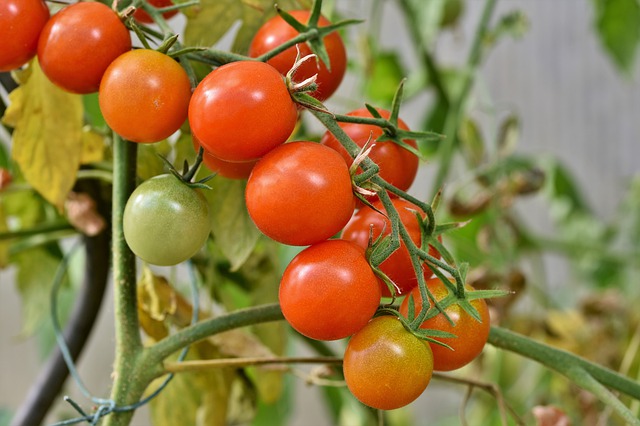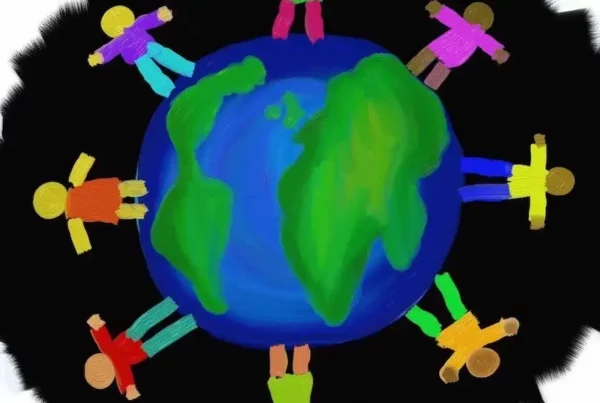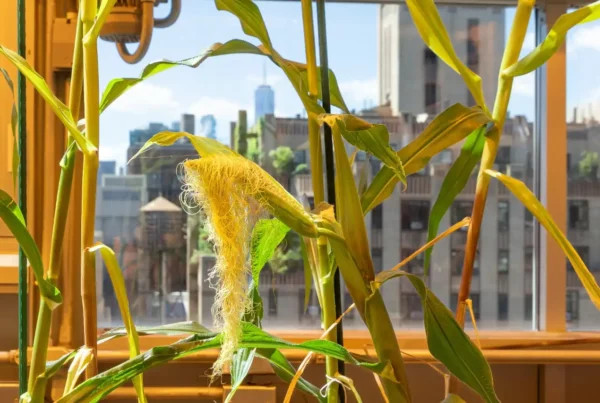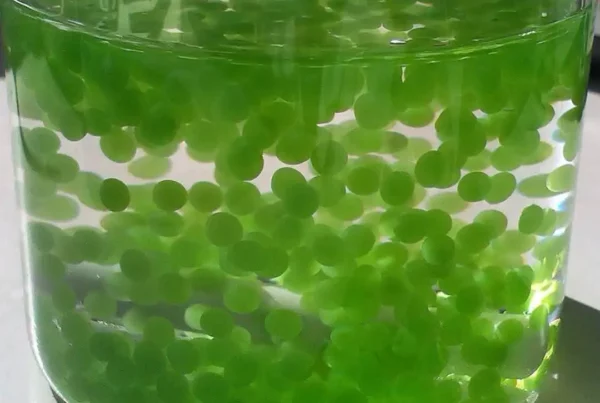Over 400 people from around the world got online at the same time to listen to international experts discuss the status and challenges surrounding conserving, exchanging and using the diversity of fruits and vegetables in 2021, the International Year of Fruits of Vegetables (IYFV).
“The fact is that fruits and vegetables are a fundamental aspect of our nutrition, but they are also the source of livelihood for millions if not billions of people around the globe,” said Kent Nnadozie, Secretary of the International Treaty on Plant Genetic Resources for Food and Agriculture in his opening remarks. “The fact that hundreds of people from around the world attended this International Expert Panel is testimony to the importance of the subject,” he said.
This year, 2021, has been declared the International Year of Fruits and Vegetables by the United Nations, who assigned the Food and Agriculture Organization as the lead agency to draw “attention to the nutritional and health benefits of fruit and vegetable consumption, the contribution of fruit and vegetable consumption to the promotion of diversified, balanced and healthy diets and lifestyles.”
“The International Year of Fruits and Vegetables is, indeed, providing a much-needed and welcome platform to highlight the importance of conserving the diversity of our food, particularly when it comes to fruits and vegetables; however, that focus will end with 2021,” said Secretary Nnadozie, adding, “Fortunately, the International Treaty has the responsibility to work on saving, sharing and caring for the world’s diversity of fruits and vegetables for the long run. This year provides an important opportunity for the Treaty community to actively highlighting and celebrating the vital importance of fruits and vegetables diversity for human well-being.”

“We must optimize the genetic diversity of fruits and vegetables that is still conserved in farmers’ fields and in genebanks to achieve better nutrition, better environment, better production and a better life,” said FAO Chief Scientist Ismahane Elouafi. “The International Year and the upcoming UN Food Systems Summit offers a unique opportunity to focus our attention beyond staple food crops, and increase investments in the conservation, availability and sustainable use of plant genetic resources of fruits and vegetables,” she said.
“The central question …at the start of this international Year of fruits and vegetables is: how can we make use of this moment as a launching pad for future initiatives? Specifically, what are the key urgent priorities on which we can work together to achieve something of lasting importance?” said Sir Peter Crane, Chair, Executive Board, Global Crop Diversity Trust, posing some key questions. “For fruits and vegetables, sustaining diversity over the long term will be critical in overcoming the many future challenges that will surely come from changing climates, new waves of pests and pathogens, and many other factors in our very complex world,” he said.
In her opening remarks, Graziella Romito, Head of International Affairs Unit of the Italian Ministry of Agricultural, Food and Forestry Policy spoke about the importance of the IYFV to “effectively highlight the contribution of the fruit and vegetable sector to the achievement of the Sustainable Development Goals in terms of food security and nutrition improvement, in terms of a healthy life and diet, in terms of sustainable consumption.” She also spoke of focusing international efforts on sustainable value chains, emphasizing the important role played by smallholder farmers, “who are the custodians of biodiversity,” and about the importance of “ensuring the livelihoods of the millions of rural families around the world.”
The programme featured 15 speakers from various sectors, including international organizations, non-governmental organizations, educational/research institutions, civil society organizations, private industry and the public sector.
The event was divided into four segments in addition to an opening segment: (1) A global overview of the status of fruit and vegetable genetic resources; (2) Perspectives from International Treaty stakeholders; (3) Horticultural crops; and (4) Fruit trees. Speakers in each segment addressed the challenges involved in the conservation, exchange and use of the plant genetic resources of various fruit and vegetables, and presented needs and options for the future. The main takeaways from the presentations and discussion focused around the following five areas:
- There is a need for more regular efforts to fully understand and address the specific challenges in the conservation, use and availability of fruit and vegetables in general, and of underutilized crops, in particular.
- It is important to mainstream fruit and vegetable diversity into regular nutrition and sustainable diets.
- There is a need for to gather more data to fill the gaps that exist, and also for the collection and ex situ conservation of fruit and vegetable genetic resources.
- The need for the conservation of fruit diversity necessitates major cryo-preservation efforts.
- There is space and need for the development of new models for conservation and use of these plant genetic resources with non-profit and for-profit actors; including, for example, public entities, farmers’ associations, civil society groups, NGOs, research institutions and others.
The online forum was open to the public, and offered simultaneous interpretation in Arabic, English, French and Spanish, and the opportunity for attendees to pose questions. This International Expert Panel discussion was organized by the Secretariat of the International Treaty in collaboration with the Global Crop Diversity Trust (GCDT), and sponsored by the Government of Italy.
The full recording, programme and the individual presentations of this event are available on the International Treaty website at: http://www.fao.org/plant-treaty/overview/partnerships/international-panel/en/
The International Expert Panel on Fruit and Vegetable Diversity was the second online expert panel organized by the International Treaty during the global COVID-19 pandemic. The first such online discussion was held in September 2020 on the Impact of the COVID-19 Pandemic on the Conservation, Use and Exchange of Plant Genetic Resources. [2] Given the popularity and wide attendance of these online discussions, the Secretariat of the International Treaty and the GCDT have joined forces to organize a series of international online panels to bring together key actors in the conservation and use of plant genetic resources. A third online panel is being planned in the second quarter of 2021 on cryo-conservation, a method with significant potential to ensure the long-term, sustainable conservation of fruit trees and other important food crops.[3]
| The International Treaty’s Multilateral System of Access and Benefit-sharing comprises a global genepool of over 2.2 million samples of plant genetic material, including fruits and vegetables, available to farmers and breeders around the world. To date, the Multilateral System has facilitated the global exchange of over 5.7 million samples of vital plant genetic material since 2007. |
@PlantTreaty
#IYFV2021 #ItAllStartsWithTheSeed #Fruits #Vegetables
Article source: FAO
Image credit: Capri23auto / Pixabay








